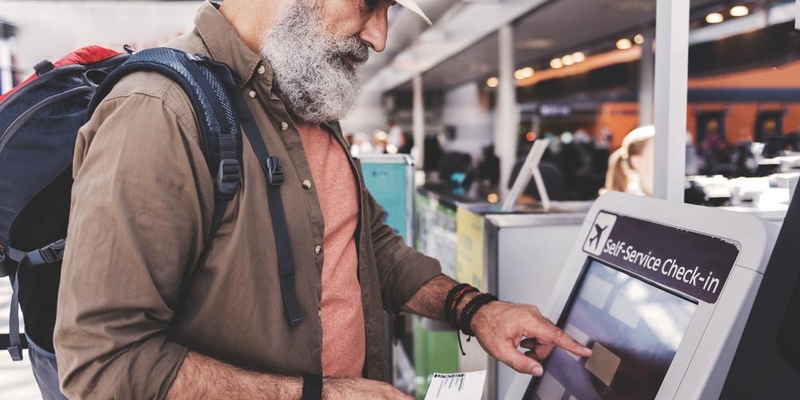
If you are not redirected within 30 seconds, please click here to continue.
Samedi: 10h – 16h HAE

If you are not redirected within 30 seconds, please click here to continue.
If you are not redirected within 30 seconds, please click here to continue.
Q&A with travel insurance company TuGo: what snowbirds should know before heading south in 2022

Table of Contents
As cooler weather starts settling in, many Canadians will be shifting their focus to the warmer temperatures south of the border. And if you aren’t already a snowbird traveller, this time of year may have you curious about the snowbird lifestyle.
Spending the winter months in a sunnier climate is certainly appealing. However, the last few years haven’t exactly made it easy. Fortunately, COVID-19 restrictions and testing requirements have since lifted for fully vaccinated Canadians who wish to travel, and many dedicated snowbirds will be planning to take flight.
Whether you’re revisiting your snowbird travel tradition, or just starting out, it’s important to be aware of how busy airports can complicate your trip, especially during snowbird season. Though the Government of Canada has made efforts to improve airport conditions, flight cancellations, delays, and lost luggage are still on the table this year. And of course, with COVID-19 cases expected to rise as the fall and winter seasons approach, Canadians need to remain vigilant while travelling.
So, if you’re planning to venture south this fall or winter, snowbird travel insurance is essential to guard against the worst-case scenario. For those snowbirds who may be new to travel or the risks of being outside of the country for an extended period, we’ve asked Louiselle Landry, business development manager at travel insurance provider TuGo, to answer some questions.
- Watch the interview here
This interview has been edited and condensed for clarity.
Q: Should you buy travel insurance if you’re a snowbird?
A: Definitely. A lot of people forget that their provincial healthcare plan does not cover them for everything when they’re outside of the country. When you travel outside of Canada, a provincial healthcare plan covers a very limited amount, so we wouldn’t want Canadians to face any big medical expense in case of an emergency while they’re away.
In the past, the focus has always been on emergency medical insurance, but with the ongoing airport issues, you should also be thinking about trip cancellation and interruption coverage as well.
Q: As a snowbird, how long before my trip should I get travel insurance?
A: For snowbirds, we always suggest that they should be looking into it in advance of their trip and not leave things to the last minute to make sure that they have time to review what kind of coverage they would need and what they should look for.
In general, a few weeks before their travel date. But with TuGo for example, snowbirds can purchase a policy up to one year before their travel date. And our rates are based on the time of application, not the time of the travel taking place. So those are some things to think about when purchasing insurance.
Q: What should my travel medical insurance cover and how much coverage do I need?
A: You want to make sure as a traveller that you have enough coverage to cover you for any unforeseen medical emergency. When it comes to ambulance services you have to think of ground ambulances as well as air ambulances, transfers, hospitalization, prescriptions, and medical treatments that would be unforeseen when travelling. It can be small to quite big.
Q: Is it cheaper to buy snowbird insurance in the country you’re visiting?
A: It’s always better to buy insurance prior to leaving your home country, otherwise you face not finding coverage where you are. Typically, it would be less expensive for a Canadian to purchase insurance prior to leaving than purchasing it first thing at their destination.
Q: Can I buy Canadian travel insurance if I’m already in the U.S.? Or can I renew my coverage from abroad?
A: Yes, it would depend on the carrier, but if someone has left the country, and they’re already on their trip and they just forgot to get travel insurance, some insurance companies will allow coverage after departure. This depends on when they left or how long they’ve been gone for and if they are currently in good health or not in good health.
If they are already on their trip and have coverage, but decide to extend their stay, then at that point they should contact their provider and request an extension, so they’re getting extra coverage for a longer period of time than they anticipated. And usually that’s reasonable. So yes, someone can purchase insurance even though they are currently outside of Canada.
Q: What do I do if I test positive for COVID-19 and need to extend my stay in the U.S.?
A: For COVID-19, it’s a little different. Each provider will have their own policy wording. We always suggest if someone tests positive for COVID-19 to contact their insurance provider’s claims department right away to find out what the next steps are.
Of course, there are some extensions that will be provided because the client is unable to return home as planned, depending on when the emergency happened and when they contracted COVID-19. Each situation is very different depending on whether the person contracted COVID-19 after their first day at their destination or if this person can’t return home because they contracted COVID-19.
Each provider will provide different coverage as well. So, it’s worth it for the policyholder to contact the provider as soon as possible if they do contract COVID-19 so they get the information that they need.
Q: Let’s say something goes wrong. How do I make a travel insurance claim?
A: Most insurance providers will accept claims either online or by phone. Personally, I always say calling your provider is the best option — that way with a phone call the claims department can inform the traveller of what to do, what’s next, and explain what their coverages are.
However, there are a lot of travellers who like to file their claims online. That’s also really great. However, they need to understand their policy and what is and isn’t covered moving forward. So, I tend to think it’s always good to have a phone call.
Q: Where should I buy snowbird travel insurance?
A: A lot of travel insurance policies are purchased through brokers, financial advisors, and online. There are many places people can purchase their snowbird insurance and ensure they have the proper coverage when they go away.
Each traveller has their own needs in terms of travel insurance, so comparing coverage to coverage and provider to provider is always better to do prior to purchasing to get what they need.
Interested in creating content with RATESDOTCA? Reach us at email@rates.ca.
Don't waste time calling around for travel insurance
Use RATESDOTCA to shop around, and compare multiple quotes at the same time.
Finding the best travel insurance coverage has never been so easy!
Get money-saving tips in your inbox.
Stay on top of personal finance tips from our money experts!










